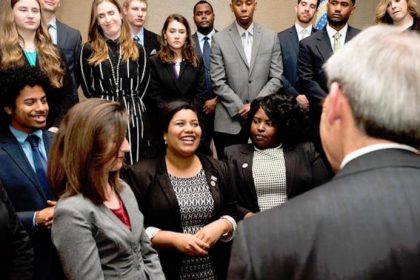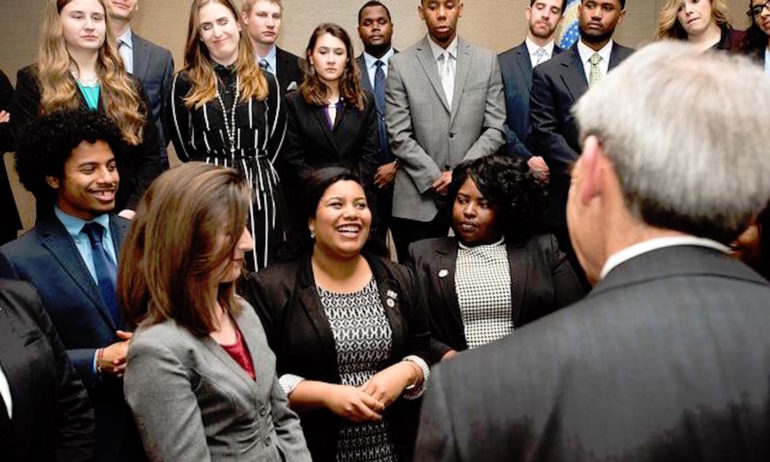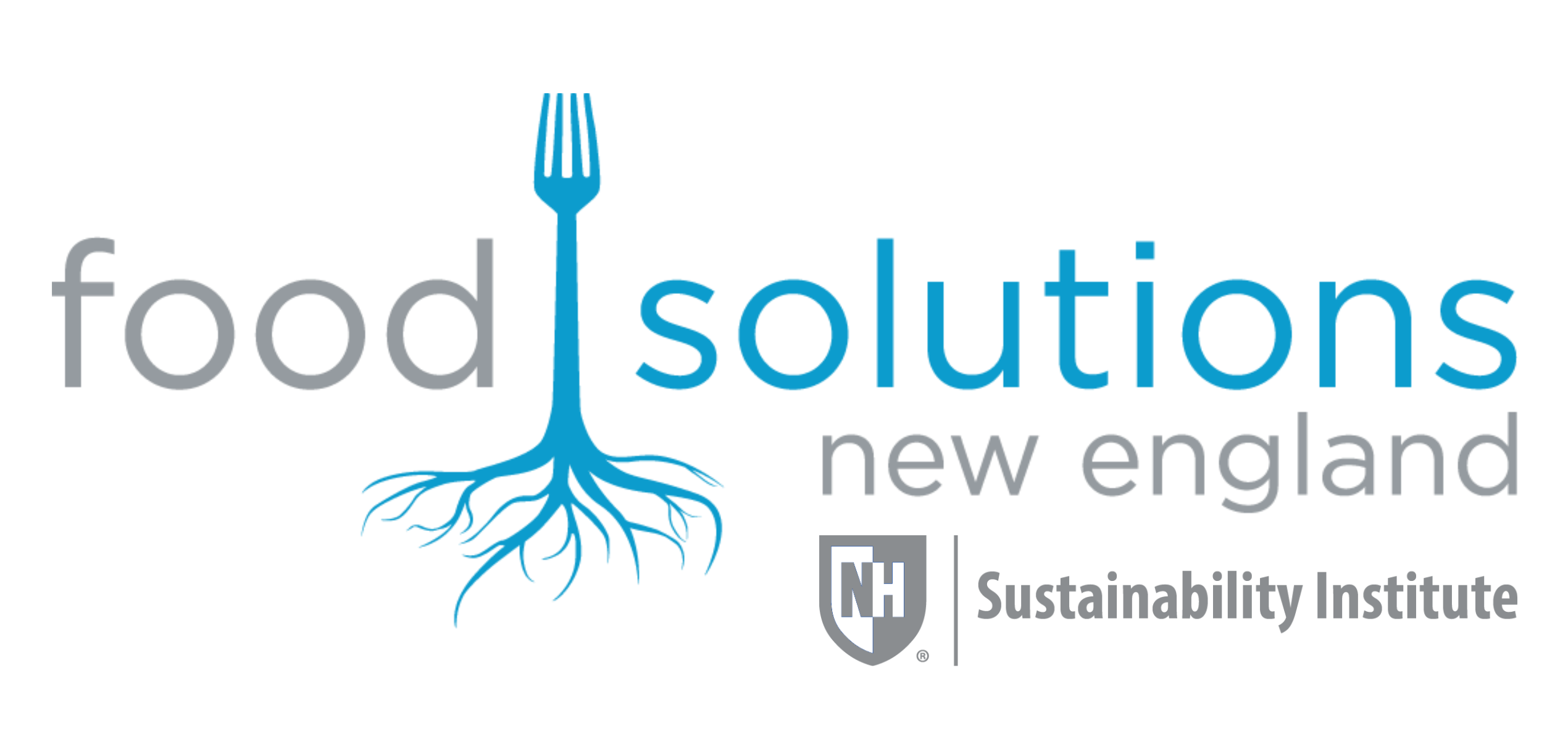
Food Tank’s interview with Network Leadership Institute participant Vanessa Garcia Polanco originally appeared on Food Tank’s website.
 Vanessa Garcia Polanco’s passion for food and agricultural policy arose from the influences of her community in the Cibao Valley of the Dominican Republic, for whom “local food was not an option; it was the rule.”
Vanessa Garcia Polanco’s passion for food and agricultural policy arose from the influences of her community in the Cibao Valley of the Dominican Republic, for whom “local food was not an option; it was the rule.”
After moving to the United States with her family six years ago, Garcia Polanco attended the University of Rhode Island to study agriculture’s impact on the environment. Concerned with the noticeable disconnect between food and its source, Garcia Polanco strives to offer a new voice in food and agricultural policy.
At the Northeast Sustainable Agriculture Working Group’s (NESAWG) recent conference “It Takes a Region,” Garcia Polanco lead a discussion with fellow emerging leaders on engaging and participating in the food system as youth. She was recently elected as Outreach Chair for the Rhode Island Food Policy Council.
Food Tank spoke with Vanessa to find out how she, and other emerging leaders, can solve deeply entrenched problems in our food system.
Food Tank (FT): What inspired you to study environment, natural resource economics, hunger studies, and sustainable agriculture?
Vanessa Garcia Polanco (VGP): I grew up in the agricultural cornucopia of the Dominican Republic, the Cibao Valley, where everyone worked in agriculture in one way or another. The culture of mass agricultural production, large-scale monoculture plantations, and cassava (a starchy root crop native to South America) plantations were part of my everyday life.
Six years ago, my mom, sister, and I moved to the United States. I had the opportunity to study agriculture through a different lens than that offered in the Dominican Republic including socio-economic development, international law, and the environment. Inspired by agricultural experiences growing up, I decided to pursue an undergraduate degree concentrated on natural resource economics and hunger studies at the University of Rhode Island (URI).
The Center for Hunger Free America partners with URI, offering a hunger studies minor and allowing me to approach the study of hunger academically. By taking classes focused on poverty and policy, I learned that the study of hunger is changing disciplines, transitioning from a public health approach to a political or economic approach. At URI, I gained expertise in both environmental and hunger-related issues, studying the effects of the environment on hunger and vice versa.
FT: How did your participation at NESAWG’s It Takes A Region Conference inform your perception of the role of diversity in the work of emerging leaders in the food system?
VGP: The role of diversity in the work of emerging food system leaders is extremely important, and NESAWG opened my eyes to the lack of it. Fellow conference attendees and I wrote a document outlining suggestions to help NESAWG embrace diversity in the lives of emerging leaders, which was recently published as an article on NESAWG’s blog. Since receiving our feedback, NESAWG has invited more young leaders to it is annual conference committee planning and it is actively engaging with them to create a space were regional emerging leaders can have a voice.
FT: According to your experiences at NESAWG, what is the most pressing issue that can be solved by humanizing the food system?
VGP: The efforts to humanize the food system must be led by grassroots communities as community members can more effectively define and implement long-term solutions to persistent issues faced by their individual community. Sometimes, powerful groups within the food system can dominate a community rather than empower them. In order to truly humanize the food system, communities must be empowered to solve issues from within.
FT: What role do emerging leaders have in changing the current U.S. culture that disconnects food from its source?
VGP: I maintain that emerging leaders need to be careful of idealizing or romanticizing food systems in a way that prioritizes a small-scale, farmers’ market approach on the path to change. We need to realize that such approaches may not solve global issues. Emerging leaders should learn about a wide variety of food system issues including policy, food access, waste management, and cultural relativism.
FT: In one sentence, what should emerging leaders do to ensure that their inclusion in agricultural discourse becomes a norm (and not an exception)?
VGP: It is your right and responsibility; you are entitled to be at the table.
FT: What have the most helpful mentors in your life done to encourage your leadership in agriculture policy? What lessons should other mentors take from them?
VGP: My greatest mentors give me endless feedback. I have strong relationships with my mentors who support my greatest endeavors and teach me to use my strengths and combat my weaknesses to achieve my goals. A successful mentor-mentee relationship depends on transparent communication. Other mentors should learn to simply ask the mentee what they need to advance towards their goals.
FT: How are you planning to use your agricultural experience in the near future?
VGP: I’m planning to focus on open-governance in my new position as Outreach Chair with the Rhode Island Food Policy Council. I want to increase transparency and engagement between the community and our council as, currently, only council members attend our meetings. Increasing community participation at council meetings and events is important because it will allow the community to see who is representing them, and how they plan to achieve change. I believe this is the best way to cultivate a grassroots approach to food governance and food sovereignty.
This interview has been edited for length and clarity.




